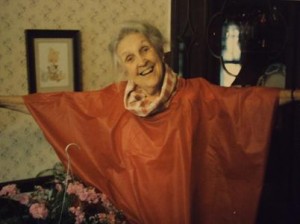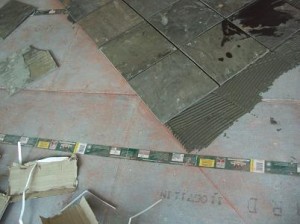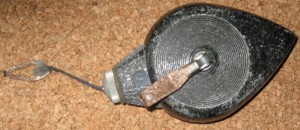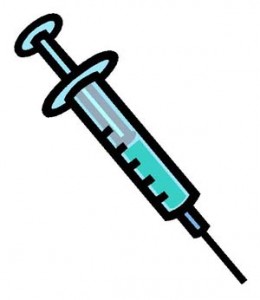After being with Dad, Mom and Nate as their lives wound down, I’ve learned people on pain meds are not themselves. Trying to have a conversation with a heavily drugged person gives meaning to the word “hallucinogen.”
All of us wonder what we’ll say in our final days. Dad remained dignified, and Nate, who always had much to say, was accurate and gracious to the end.
But Mom? Absolutely goofy. Her colorful statements were so entertaining, we kept a log. She’d been a one-woman-show during her non-medicated life, and her words while drugged (for pain) stayed in line with her character.
Get ready to laugh.
- Chewing on the hem of her hospital gown she said, “This tastes good, and I like the color. It’s also very nourishing.”
- To a grandson: “Let’s play funeral. I’ll be the corpse. You be the soloist.”
- To a sweet visitor: “I can’t wait to get rid of you.”
- “The most important thing is my conversation with God. He talks out of the Bible, and I talk back.”
- To me: “Let’s both get in the same bed and start a riot about same sex marriage.”
- It’d be nice to see my apartment again, but I guess I’d rather go to heaven. I’ll wave down at you.”
- Looking at our wrinkles: “Do I have strings all up and down my face? Because both Mary and Margaret do.”
- To a nurse removing her dinner: “Save that food tray. When I’m in heaven, if the Lord decides not to return to Earth, I’ll have something to feed him.”
- “Maybe I’ll go to bed now.” We said, “You’re already in bed.” Then she said, “Boy, that was easy.”
- Son Tom asked: “How do you feel?” She said, “With my hands. How do you feel?”
- After restlessly working both legs out from under the sheets, she began laughing hysterically. We said, “What’s so funny?” She sputtered, “My beautiful legs!”
- To me: “I wish you a Happy New Year and that you’ll get prettier.”
- “If I can do anything for you, let me know. I can only do things in my miserable way, but I am the way, the truth and the life.”
- “It’s nice when parents are just starting out and know that ‘Jesus loves their little children.’ That helps when they don’t know anything.”
- “Maybe I should change my mind about going to heaven tonight. There’s lots of happy people here, too.”
- “I served 10 salmon. Put the rest over there. It’s brain food. It’s ok, but not great.”
- “When I die, just drown the [pet] bird and throw him in the toilet.”
- Pushing an invisible item around the end of the bed with her foot: “I’m trying to get that muffin over into the corner.”
- A friend called and said, “Who’s there with you?” She said, “Just Mary and Margaret, if you call them visitors. It’s more like a zoo.”
- “Today I’m better. I have happiness running out of my lips.”
- To a visitor: “I’m going to throw up any minute…on you.”
- Fingering her hospital gown: “I’m going to send this to Joyce. She likes blue and can wallpaper a room with it.”
- “If I ever wrote a book, it would be about the magnificent mercy of God.”
These are just a few from 26 pages of Mom’s colorful statements. She spoke often of her approaching death but never with uncertainty or fear. One of her last statements while “under the influence” was, “Some stumble, some fall, but if we love Jesus Christ, we all eventually get home.”
She got home 19 days later… but forgot to take her salmon.
“We would rather be away from these earthly bodies, for then we will be at home with the Lord.” (2 Corinthians 5:8)






